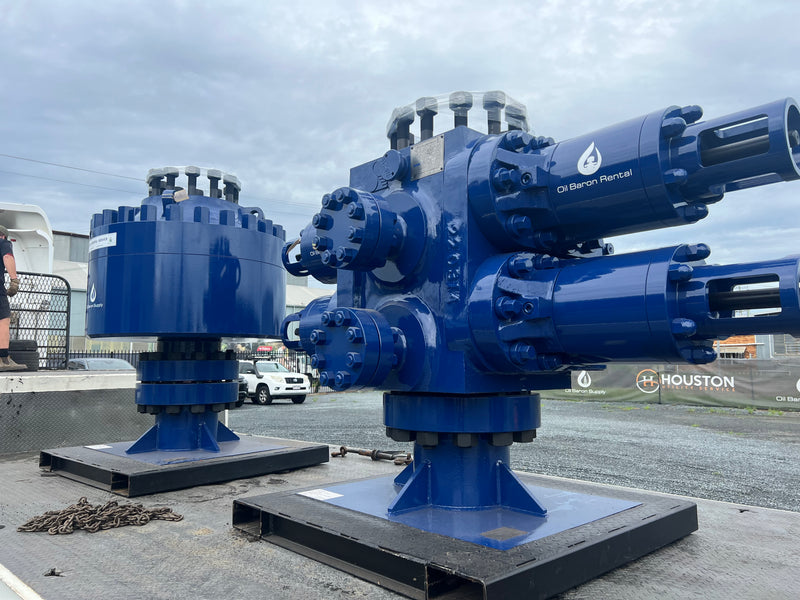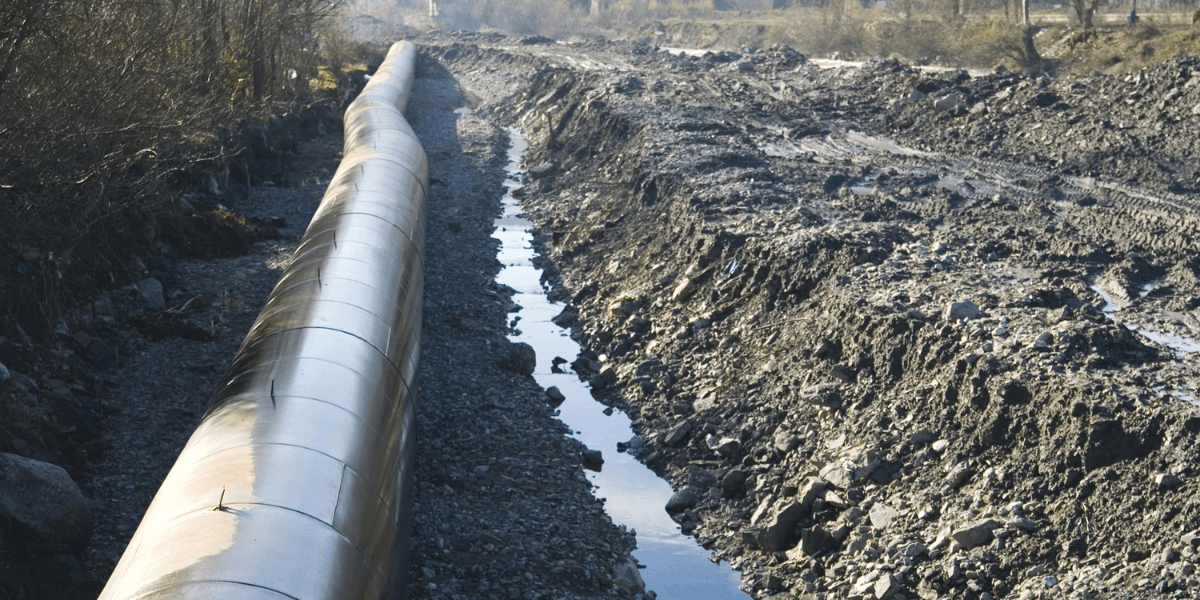Superior Oilfield Rentals oilfield: importance for drilling projects
Wiki Article
A Comprehensive Guide to the Different Sorts Of Oil Field Equipment and Pipeline Equipment Available
The oil and gas sector counts greatly on specialized devices for effective removal and transport. Different kinds of equipment, from piercing rigs to storage space containers, play essential functions in this intricate process. Each tool offers distinct functions that add to general operational success. Comprehending these elements is necessary for any individual associated with the field. As the sector advances, so also do the innovations that support it. What developments are on the horizon?
Drilling Rigs: The Backbone of Oil Expedition
Drilling rigs function as the necessary machinery in the domain of oil exploration, enabling business to accessibility hydrocarbon books hidden deep below the Planet's surface. These rigs are available in different types, consisting of land rigs, offshore rigs, and mobile devices, each developed to run in specific atmospheres. Equipped with sophisticated innovation, piercing rigs can pass through geological developments with precision, guaranteeing effective source removal. The architectural integrity and operational capabilities of these rigs are critical, as they should stand up to extreme conditions and considerable stress. The selection of an exploration gear impacts the overall project cost and timeline, making it an essential consideration for oil companies looking for to maximize their expedition initiatives and optimize performance in their procedures.Pumps: Essential for Fluid Activity
In the oil removal process, the role of pumps is significant, facilitating the movement of liquids throughout different stages of manufacturing. Pumps are essential for delivering crude oil, water, and other fluids from below ground storage tanks to the surface area and then through pipelines to refineries. They come in various kinds, consisting of centrifugal, favorable variation, and completely submersible pumps, each offering specific objectives based upon the fluid qualities and functional needs. Centrifugal pumps are generally made use of for their performance in high-flow applications, while favorable variation pumps succeed in dealing with thick liquids. The selection of pump influences total performance, operational safety and security, and maintenance prices. Appropriate option and maintenance of pumps are vital for maximizing manufacturing and reducing downtime in oil field procedures.Valves: Managing Circulation and Pressure

Shutoffs play a crucial duty in handling the flow and stress of liquids within oil fields and pipelines. Numerous sorts of shutoffs serve unique applications, each made to satisfy certain features fundamental for effective procedure - Superior Rentals fusion machines. Understanding the qualities and usages of these shutoffs is essential for enhancing system performance and security
Sorts of Valves
Essential components in oil area procedures, shutoffs play a critical role in managing the flow and pressure of fluids within pipelines and tools. Numerous sorts of valves are utilized to satisfy the varied demands of oil and gas manufacturing. Common types consist of gateway valves, which provide a straight-line circulation and marginal pressure drop; globe valves, recognized for their strangling capacities; and sphere valves, recognized for their fast on/off control. Additionally, check shutoffs stop backflow, while butterfly shutoffs use a light-weight service for controling circulation. Each shutoff type is made with details materials and configurations to hold up against the rough conditions often found in oil fields, guaranteeing reliability and efficiency in procedures. Recognizing these kinds is vital for effective system management.Valve Applications and Features
While different kinds of valves serve unique purposes, their key applications revolve around regulating circulation and pressure within oil and gas systems. Shutoffs such as gate, world, and ball shutoffs control fluid motion, guaranteeing peak performance and safety and security. Entrance shutoffs are generally used for on/off control, providing marginal flow resistance. World valves, on the various other hand, offer precise circulation guideline, making them ideal for throttling applications. Ball valves are preferred for their quick procedure and tight sealing abilities. Furthermore, pressure safety valve are crucial for preventing system overpressure, protecting equipment integrity. In general, the ideal choice and application of shutoffs enhance functional effectiveness, guaranteeing the reliable transportation of oil and gas through pipes and processing facilities.Compressors: Enhancing Gas Transport
Compressors play a critical role in the efficient transport of natural gas, making sure that it relocates smoothly with pipelines over cross countries. These gadgets raise the stress of all-natural gas, permitting it to get over rubbing and altitude adjustments within the pipeline system. In addition, compressors promote the harmonizing of supply and need, suiting changes in usage and production rates. Various kinds of compressors are utilized in the market, consisting of centrifugal, reciprocating, and rotating screw compressors, each offering distinct advantages based on the operational demands. Normal upkeep of these compressors is vital to make best use of performance and minimize downtime, eventually adding to a reliable gas transportation network. Their critical feature highlights the value of compressors in the click here total oil and gas framework.Storage Tanks: Safe and Reliable Liquid Administration
Efficient transport of natural gas counts on numerous support group, one of which is the proper management of tank. These storage tanks play a crucial duty in safely including fluids, ensuring that functional effectiveness is preserved while reducing environmental threats. Built from durable materials, they are made to stand up to high pressures and destructive components. Appropriately sized and strategically situated, storage containers facilitate the smooth flow of natural gas and various other fluids, protecting against bottlenecks in supply chains. Normal maintenance and tracking are crucial to spot leakages or structural problems, advertising safety and compliance with governing standards. Inevitably, the reliable administration of storage containers is vital for the overall honesty and dependability of the oil and gas industry's liquid handling systems.
Pipeline Systems: Framework for Transportation
Pipeline systems function as the foundation of the oil and gas industry, promoting the effective transport of hydrocarbons over vast distances. These systems include various elements, consisting of pipes, shutoffs, pumps, and compressors, all meticulously created to guarantee smooth flow. The materials made use of in pipeline building and construction, often steel or high-density polyethylene, are chosen for durability and resistance to corrosion. Pipeline networks can extend across land and water, connecting manufacturing websites to refineries and circulation. In addition, advanced modern technology allows real-time tracking of circulation rates and stress levels, improving operational efficiency. The calculated positioning of these pipes lessens ecological impact while maximizing resource ease of access, thereby playing a vital role in conference energy needs worldwide.Security Equipment: Ensuring Worker and Environmental Protection
The procedure of pipeline systems, while vital for energy transport, also provides significant security difficulties for workers and the setting. Safety tools plays a considerable role in minimizing these threats. Personal protective devices (PPE) such as helmets, handwear covers, and non-slip footwear safeguards employees from physical dangers. Additionally, gas discovery systems keep track of for leakages, ensuring that harmful materials do not posture a threat to workers or the bordering ecological community. Emergency situation shutdown systems are critical for quickly stopping operations during a situation, stopping possible disasters. Spill control products, including absorbents and obstacles, are basic for reducing ecological impact. Generally, purchasing all-encompassing safety and security devices is essential for maintaining functional honesty and protecting both workers and the atmosphere in the oil and gas field.
Often Asked Concerns
Exactly how Do I Choose the Right Oil Field Equipment for My Task?
Picking the ideal oil field equipment entails reviewing job specifications, budget restraints, and functional needs. Take into consideration aspects such as equipment reliability, compatibility with existing systems, and the vendor's track record to guarantee peak performance and security.What Are the Maintenance Demands for Oil Field Equipment?
Maintenance demands for oil field devices include regular evaluations, lubrication, and timely repair work. Operators ought to also follow maker guidelines, display performance metrics, and warranty compliance with safety and security guidelines to enhance longevity and efficiency.
Just How Can I Ensure Compliance With Environmental Laws?
To ensure conformity with ecological laws, firms must conduct routine audits, carry out ideal techniques, buy training, keep correct paperwork, and remain updated on regulations (Superior Rentals midland). Partnership with ecological agencies can also improve adherence to lawsWhat Is the Average Life Expectancy of Pipeline Equipment?
The ordinary lifespan of pipeline equipment normally varies from 20 to half a century, depending on elements such as worldly top quality, ecological conditions, and maintenance methods. Normal inspections can significantly influence durability and functional performance.How Do I Safely Carry Oil Field Equipment to Remote Locations?
Moving oil area tools to remote locations needs cautious planning, consisting of course analysis, safeguarding permits, making use of appropriate lorries, and guaranteeing safety and security methods are complied with. Proper training and interaction among staffs are necessary for successful transport.Report this wiki page